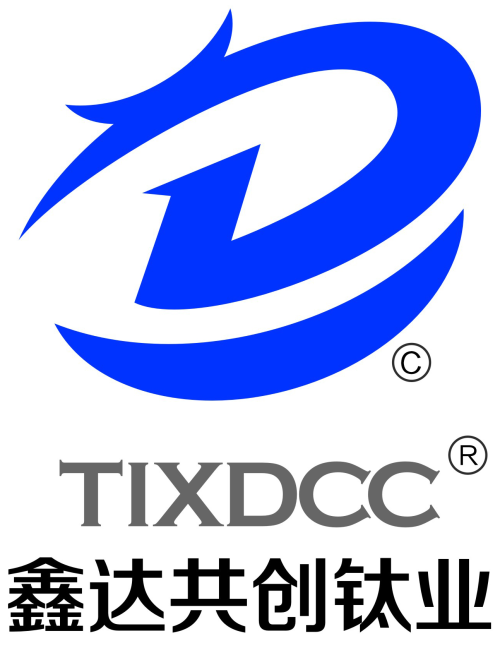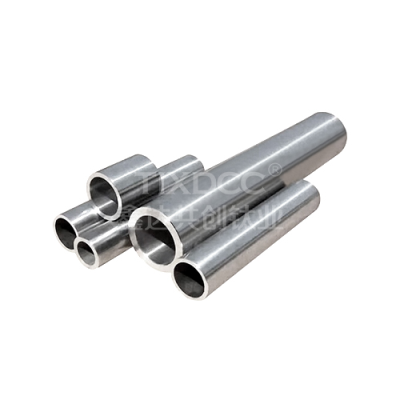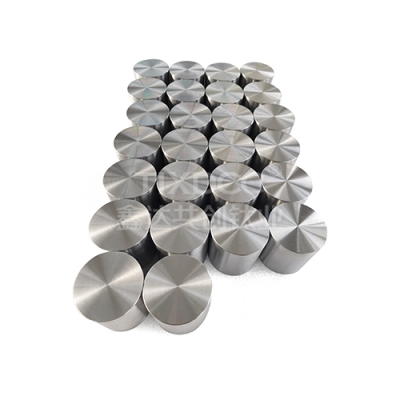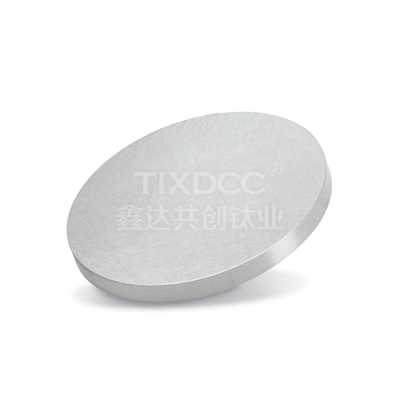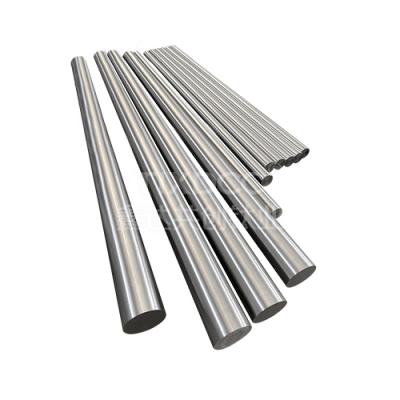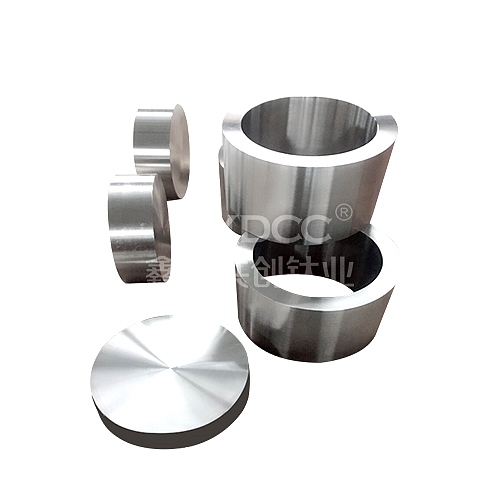
Titanium forgings
I. Overview
Titanium forgings are forged components made of titanium and its alloy materials through thermal processing, plastic deformation and other processes. It has high strength, corrosion resistance, oxidation resistance and other excellent properties, and is widely used in aerospace, shipbuilding, chemical industry, Electronics, medical equipment and other fields. This article will introduce in detail the basic information of titanium forgings, various performance specifications, physical characteristic parameters, functional advantages, applications and other precautions.
2, basic information
Material: Titanium and its alloys (TA1, TA2, TC4, TIMETAL15-3-3, TC11, TC18, etc.)
Process: Common forging processes include free forging, die forging, and one-way, multi-directional composite forging, etc.
Surface treatment: Surface treatment methods include mechanical grinding, chemical polishing, electrolytic polishing, etc.
3, various performance specifications
chemical composition
TA1: Ti greater than or equal to 99.5 percent, Fe less than or equal to 0.30 percent, O less than or equal to 0.20 percent
TA2: Ti greater than or equal to 99.0 percent, Fe less than or equal to 0.30 percent, O less than or equal to 0.25 percent
TC4: Ti greater than or equal to 90 percent, Al less than or equal to 6 percent, V less than or equal to 4 percent, Fe less than or equal to 0.30 percent, O less than or equal to 0.25 percent
TIMETAL15-3-3: Ti greater than or equal to 75 percent, Nb greater than or equal to 3 percent, Zr greater than or equal to 3 percent, Mo greater than or equal to 1.0 percent, Si less than or equal to 0.5 percent, C less than or equal to 0.08 percent
TC11: Ti greater than or equal to 90 percent, Al less than or equal to 6 percent, V less than or equal to 4 percent, Fe less than or equal to 0.30 percent, O less than or equal to 0.25 percent
TC18: Ti greater than or equal to 89 percent, Al less than or equal to 6 percent, V less than or equal to 4 percent, Fe less than or equal to 0.25 percent, O less than or equal to 0.2 percent
Mechanical behavior
TA1: Tensile strength greater than or equal to 240MPa, yield strength greater than or equal to 140MPa, elongation greater than or equal to 24 percent
TA2: Tensile strength greater than or equal to 370MPa, yield strength greater than or equal to 275MPa, elongation greater than or equal to 20%
TC4: Tensile strength greater than or equal to 880MPa, yield strength greater than or equal to 790MPa, elongation greater than or equal to 10%
TIMETAL15-3-3: Tensile strength greater than or equal to 1000MPa, yield strength greater than or equal to 930MPa, elongation greater than or equal to 10%
TC11: The tensile strength is greater than or equal to 950MPa, the yield strength is greater than or equal to 860MPa, and the elongation is greater than or equal to 10%
TC18: Tensile strength greater than or equal to 900MPa, yield strength greater than or equal to 790MPa, elongation greater than or equal to 12 percent
corrosion performance
Titanium forgings have excellent corrosion resistance and can exhibit stable corrosion resistance in various chemical media.
Solderability
Titanium forgings have good weldability, and can be welded by arc welding, argon arc welding, plasma welding and other welding methods.
5, Functional advantages and characteristics
Corrosion resistance: Titanium forgings have good corrosion resistance and can maintain durability in various acid, alkali, salt and other environments.
High strength: Titanium forgings have high strength and hardness, and are more durable than forgings of other materials.
Anti-fatigue: Titanium forgings have strong resistance to fatigue and long service life.
Quality and easy processing: Compared with other forgings, titanium forgings are lighter in weight, easy to transport and install, and are also easy to process into various shapes.
Good biocompatibility: Titanium forgings have good biocompatibility, no obvious stimulation and rejection to human tissues, and are widely used in the field of medical equipment manufacturing.
6, Application and other precautions
Application: Titanium forgings are widely used in aerospace, shipbuilding, chemical industry, electronics, medical equipment and other fields. Such as engine blades, ship propellers, chemical containers, seamless pipes, medical implants, etc.
Precautions:
(1) When purchasing titanium forgings, it is necessary to carefully check the product quality and material qualification certificates and other information, and ensure that they comply with relevant standards and specifications.
(2) When processing and using titanium forgings, attention should be paid to the requirements of the environment and medium to avoid problems such as oxidation or hardening caused by excessive fastening and contact.
(3) During the welding operation, avoid oxidation, pollution and other phenomena as much as possible to ensure the welding quality.
In summary, titanium forgings have excellent properties such as high strength, corrosion resistance, and oxidation resistance, and are widely used in many fields. When using titanium forgings, attention should be paid to the requirements of relevant standards and specifications to ensure product quality and safety.
Previous
Titanium alloy barRecommended Products
Send Inquiry
